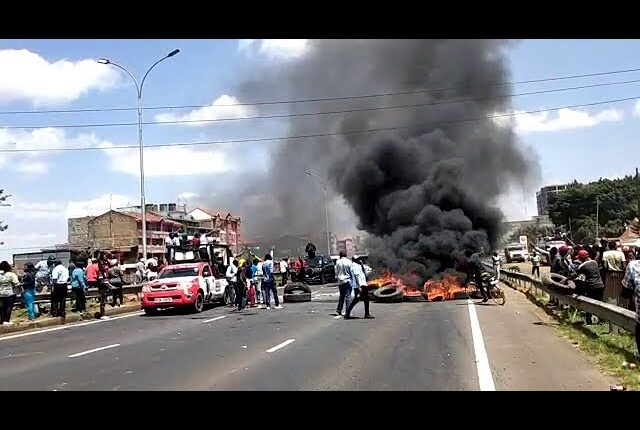The number of civilians killed in the city of Uvira has reached approximately 70, following the retreat of the Congolese government forces (FARDC) from large parts of North and South Kivu after being pushed out by the AFC/M23 alliance.
Note: Company, Blog, Church websites are free.
After being defeated on the battlefield, the government forces fled to Bukavu and Uvira, where they are now suspected of committing acts of violence and torture against civilians.
On January 27, 2025, the AFC/M23 alliance took control of the city of Goma, triggering a mass exodus of FARDC troops and their allies toward other cities in South Kivu. Bukavu fell on February 16 after intense fighting, prompting many government troops to relocate to Uvira, Nyangezi, and Kamanyola.
Areas such as Kamanyola, Nyangezi, and other parts of South Kivu quickly fell to M23 forces, causing a chaotic retreat by those aligned with the Kinshasa government.
As a result, the Congolese government moved the provincial headquarters of South Kivu to Uvira, which has effectively become its last remaining stronghold in the province.
However, the concentration of government troops (FARDC), allied militias like FDLR, Burundian forces, and Wazalendo in one area has brought devastation to the local population. In a short time, civilians began experiencing killings, looting, and abductions, creating a severe security crisis in Uvira.
A report by a local community monitoring group obtained by ITYAZO shows that 64 people were killed between February and May 2025. The report indicates that the number could exceed 70 if soldiers killed in similar circumstances are included.
Among those killed was Kinyungu Sangephar, around 60 years old, who was shot dead in the Mulongwe neighborhood three weeks ago. Two others were killed on May 19 in the Karmeli/Talatala neighborhood. Another man, known as Angola, was shot in the Kabindula neighborhood on May 11, 2025.
Many others have been killed since February this year, some for allegedly aiding the AFC/M23 alliance, others by government forces on suspicion of collaboration.
Uvira remains highly insecure, with residents reporting that their property is being openly looted.
Many locals say they are hoping for peace once the city comes under the control of M23 and Twirwaneho forces, as areas under their control are reportedly more stable compared to those held by FARDC, FDLR, and other government-affiliated militias.
These testimonies reveal that the insecurity in Uvira is not merely the result of clashes between two warring sides but also of deliberate acts of terror by government forces and their allies, who have abandoned their duty to protect civilians.
The growing death toll in Uvira continues to stir debate and concern among residents of South Kivu and observers monitoring the security situation in the Democratic Republic of Congo.
The fact that over 70 people have been killed in such a short time, mainly by FARDC, FDLR, Burundian forces, and Wazalendo, has led many to question why the Kinshasa government remains passive and fails to stop these massacres.
Civilians are questioning why the areas still under government control have become bloodbaths for innocent people, while zones held by the AFC/M23 alliance are relatively peaceful.
Many are starting to believe that the Kinshasa leadership no longer has the will or the capacity to protect civilian lives. As the death toll rises, public confidence in the government’s ability to ensure security continues to plummet.
Though the current number of deaths is already high, Uvira residents fear it could double if justice continues to be ignored, killings go unpunished, and civilian reports are continually disregarded.



